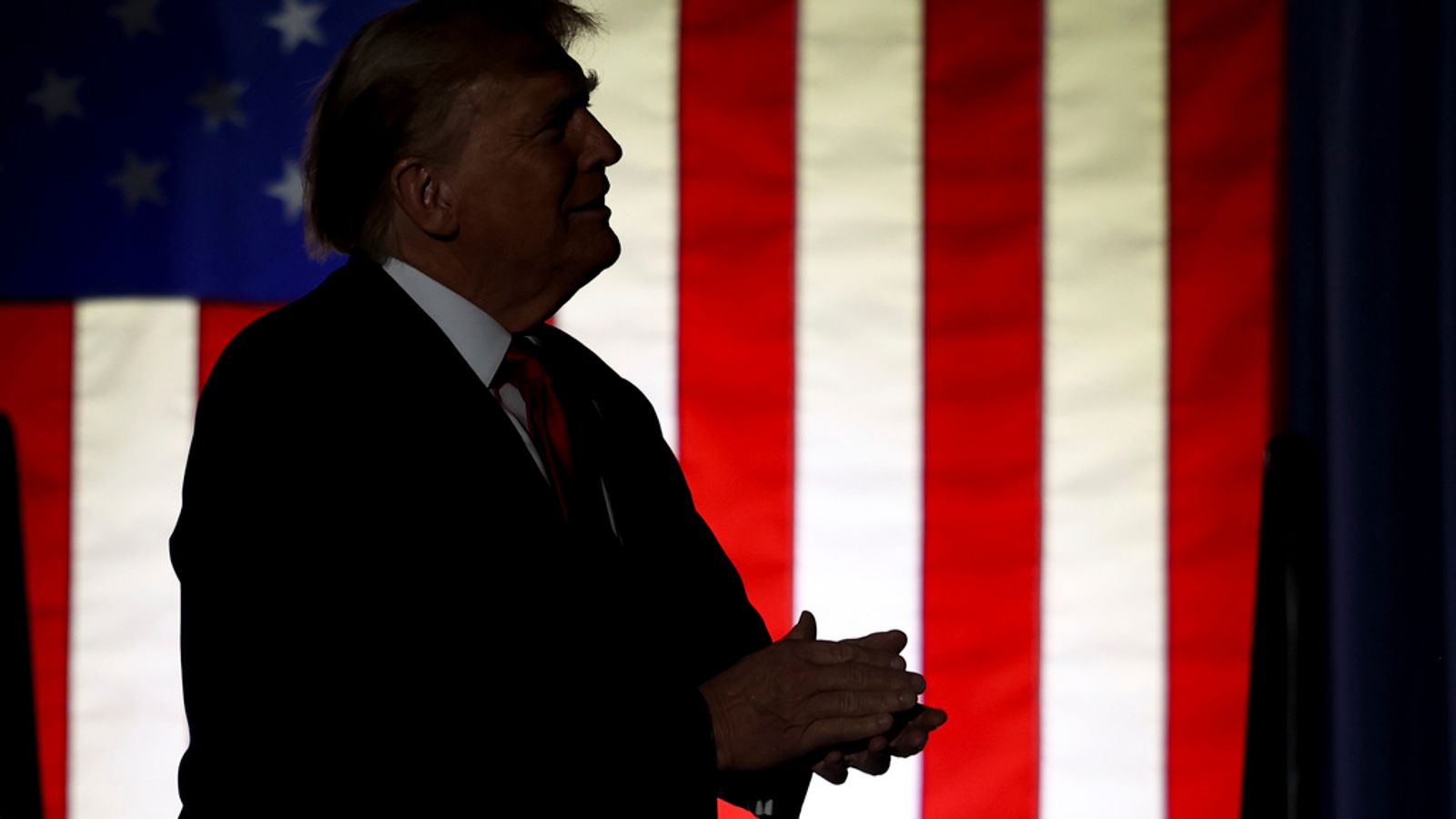Be in no doubt, to remove a candidate from an election ballot, a former president no less – it is a quite remarkable moment.
A reality check first. There is a way to go here. Appeals will now come against a decision that is as controversial as it is unusual.
What’s been decided?
In November, a district court judge in Colorado tasked with judging Donald Trump’s eligibility as a candidate in the state ruled that Trump had engaged in insurrection during the 6 January Capitol riots but that presidents are not subject to Section 3 of the 14th Amendment, the so-called Disqualification Clause, because presidents are not “officers of the United States”.
Last night though, the Colorado Supreme Court, made up of judges appointed by Democratic governors, agreed that Trump had engaged in insurrection, but it rejected the district court’s finding that the president is not an officer of the country that elected him. And so his name has been removed from the state ballot.
What is the 14th Amendment?
The ruling centres around an interpretation of Section 3 of the 14th Amendment of the United States constitution. Written after the Civil War, it was designed to prevent Confederates from becoming president.
It bars any person from holding federal or state office who took an “oath… to support the Constitution of the United States” and who has then “engaged in insurrection or rebellion against the same, or given aid or comfort to the enemies thereof”.
What now?
So what next? Well, Donald Trump has said already that he will appeal to the Supreme Court of the United States in Washington – the nation’s top judges who are weighted in his favour thanks to appointments he made as president.
The US Supreme Court is not obliged to take the case on but it’s very likely that it will.
A key legal argument will be whether the judgment in Colorado is seen as a political opinion – a political decision by a liberal state court as Trump believes it is – or whether it is a judgment based solely on constitutional law.
The judges will consider whether it’s appropriate to take Mr Trump off the ballot without a criminal conviction – remember that he has not been convicted of insurrection, though he was impeached for it.
They may also consider the fact that the 14th Amendment doesn’t explicitly name the position president, though it does say “any person”.
Explainer:
All you need to know about Trump’s legal labyrinth
Please use Chrome browser for a more accessible video player
Be the first to get Breaking News
Install the Sky News app for free
How significant is Colorado in the national race for president?
Not very. Trump lost the state in 2016 and still won the presidency back then.
The polls this coming year are pointing to another victory in Colorado for Joe Biden’s Democratic Party.
Things will change, though, if other states also remove Mr Trump from their ballots.
So could other states follow a precedent set by Colorado?
It depends on what the US Supreme Court decides. If it upholds the ruling made by the Colorado Supreme Court then, yes, other states could follow and the Mr Trump’s dominoes could begin to fall.
But, courts in Minnesota and Michigan have rejected similar legal efforts to disqualify him from running.
Please use Chrome browser for a more accessible video player
When could the US Supreme Court rule on this?
Assuming the US Supreme Court does take up the case, it’s thought its judges will need to rule on it in the next few weeks.
The Colorado court order doesn’t come into effect until 4 January.
The following day Colorado prints its ballots – with or without Donald Trump’s name on it.
What are the implications for America’s fractious politics?
Huge, in a word. Mr Trump’s supporters in Colorado will argue that they have been disenfranchised because they would be unable to vote for their candidate.
They will ask: Is it right that a court should remove voters’ ability to vote for someone?
Expect his supporters to be further enraged by what they see as an establishment plot to remove their man.
Notably, Mr Trump’s Republican competitors, who would clearly benefit from his removal, are arguing the people, not judges, should decide who should be president.
Even some Democrats are already asking if this is really the best way to beat Trump.
Even if it is a constitutional issue, wouldn’t they be better off trying to beat him at the ballot box?







